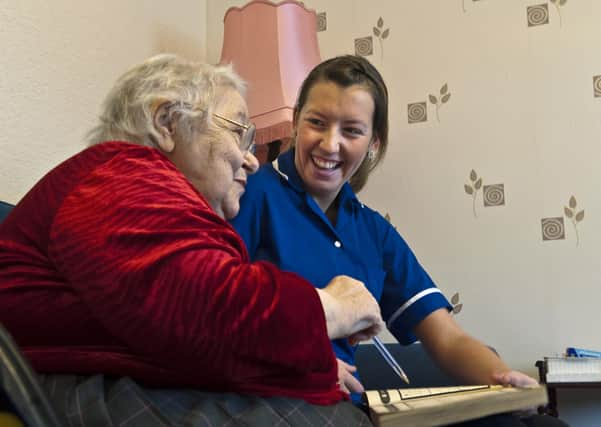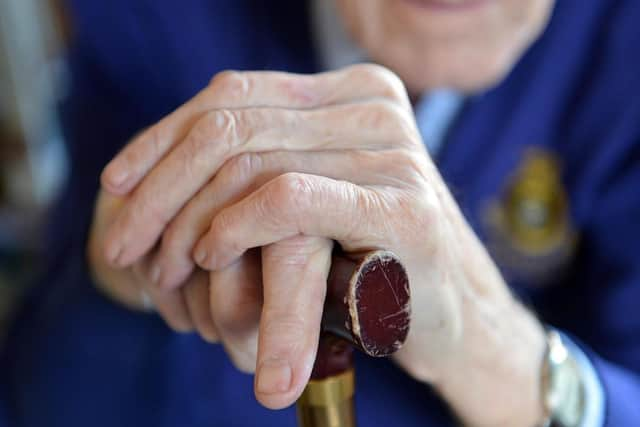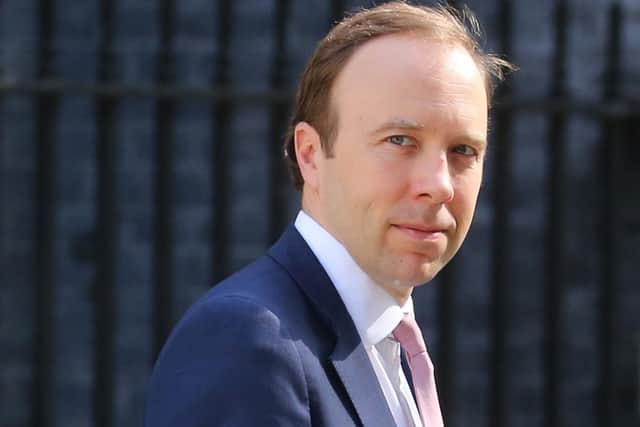Why we need one health and care system – David Hinchliffe


But this is a description of the scene in an English private care home just last month. The coronavirus pandemic has exposed many flaws in the Government’s approach to public health but, more than anything, underlined the urgent need to radically reform our social care system.
Frankly, what has been happening within many of our care homes in recent months challenges our claim to be a civilised society. What our under-paid and undervalued care staff have had to face has been nothing short of an utter disgrace.
Advertisement
Hide AdAdvertisement
Hide AdIt is difficult to argue with public health expert Professor Peter Piot’s recent comment on how we treat our elderly: “We often park them in pre-mortuary type institutions…give them a bit of money and hope it is OK.”


The Yorkshire Post has, for years now, campaigned for the publication of a social care Green Paper by the Cameron, May and now Johnson governments. This ongoing political embarrassment for the Conservatives has worsened as a result of care homes being apparently blamed for the current difficulties by the Prime Minister, who will recognise the need to dig himself out of the hole with urgent policy proposals.
My fear is that such proposals will concentrate solely on the funding of care rather than its future structure and quality and, crucially, how it relates to the NHS. In doing this, the Government would be putting the cart well and truly before the horse.
Watching the daily coronavirus news conferences, it was difficult to avoid the impression, very early on, that some in Government had been blissfully unaware of the actual existence of care homes until the daily death figures led Health Secretary, Matt Hancock, to claim in May his department had “thrown a protective ring around them”. Bearing in mind that our Covid-19 death rate in these homes is apparently 13 times higher than our near-neighbours Germany, what might it have been without this ‘protection’?
Advertisement
Hide AdAdvertisement
Hide AdThe clearest lesson of the current situation is that our two separate health and care systems should be totally connected, with one organisation meeting all an individual’s needs.


It is impossible to divide the health and care requirements of a person with, say, dementia and crazy that, organisationally, we try to do just this.
So, before we start discussing funding issues, we have to address the even more pressing need to completely merge the two systems, as the Commons Health Committee has recommended several times. It should be our tax system which wholly funds care needs as it does with health issues.
I totally accept this will lead to significant tax increases for some but it would end, forever, the iniquities around meeting care costs and arguments around whether an individual’s needs come under free NHS provision or means-tested social care. It would also completely end the financial reasons behind hospital beds being ‘blocked’ by patients awaiting social care provision, as both forms of care would be funded from the same budget.
Advertisement
Hide AdAdvertisement
Hide AdWhat I am proposing isn’t new. The post-war Attlee government wanted both hospital provision and social care provided by local government, but it was blocked by the BMA’s opposition to what they viewed as doctors being put under ‘political’ (i.e. democratic) control.
The consequence has been two separate systems which have become fragmented even further since the Thatcher and Major governments almost wholly privatised both residential and domiciliary care provision, with local councils reduced to just commissioning social care from private and independent providers.
A logical consequence of merging health and care provision would be the gradual replacement of what is shamefully called the care ‘market’ by properly planned public provision with a legal duty to support people in their own homes, using technological solutions to enable even those with dementia remain reasonably independent where this is possible.
Just as we are finding the advantages of telemedicine when it is not possible to see a doctor face-to-face, telecare offers huge opportunities. If we significantly expand sheltered and very sheltered housing, with round the clock on-site support, control of infections among the vulnerable can be much more effective.
Advertisement
Hide AdAdvertisement
Hide AdBut, where a permanent residential setting is required, we need to radically expand continuing care retirement community models, like Hartrigg Oaks in York, and offer flexible care tailored to individual needs.
Scarcely a week goes by without the owners of private care homes proclaiming their financial struggle to continue operating, so they will presumably welcome the gradual return of care provision to the public sector where addressing the poor pay levels and working conditions of care staff can begin to address high vacancy levels.
Even a former Conservative Minister, Baroness Altmann, has called for their nationalisation. Rarely a week passes without criticism of the quality of care, underlining the fact that its privatisation has been a failed experiment.
The care home sector’s £15bn annual income can be far better used in developing models of care more akin to the 21st century. It is accepted that our experience of the pandemic will lead to huge changes in the way we live. Nowhere are these more urgently needed than in social care.
Advertisement
Hide AdAdvertisement
Hide AdDavid Hinchliffe worked in social care for nearly 20 years before serving as Wakefield’s MP from 1987 to 2005. He was Shadow Community Care Minister and then chaired the Health Select Committee from 1997-2005.
Editor’s note: first and foremost - and rarely have I written down these words with more sincerity - I hope this finds you well.
Almost certainly you are here because you value the quality and the integrity of the journalism produced by The Yorkshire Post’s journalists - almost all of which live alongside you in Yorkshire, spending the wages they earn with Yorkshire businesses - who last year took this title to the industry watchdog’s Most Trusted Newspaper in Britain accolade.
And that is why I must make an urgent request of you: as advertising revenue declines, your support becomes evermore crucial to the maintenance of the journalistic standards expected of The Yorkshire Post. If you can, safely, please buy a paper or take up a subscription. We want to continue to make you proud of Yorkshire’s National Newspaper but we are going to need your help.
Advertisement
Hide AdAdvertisement
Hide AdPostal subscription copies can be ordered by calling 0330 4030066 or by emailing [email protected]. Vouchers, to be exchanged at retail sales outlets - our newsagents need you, too - can be subscribed to by contacting subscriptions on 0330 1235950 or by visiting www.localsubsplus.co.uk where you should select The Yorkshire Post from the list of titles available.
If you want to help right now, download our tablet app from the App / Play Stores. Every contribution you make helps to provide this county with the best regional journalism in the country.
Sincerely. Thank you.
James Mitchinson
Editor
Comment Guidelines
National World encourages reader discussion on our stories. User feedback, insights and back-and-forth exchanges add a rich layer of context to reporting. Please review our Community Guidelines before commenting.